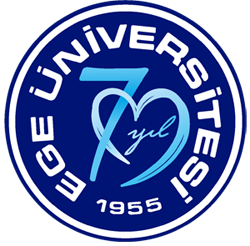Competence Areas and Competencies
Pre-Graduation Education Competence Areas and Competencies
1. Professional Practices
1.1. Health Service Provider – Physician
1.1.1. Acquires and uses basic, clinical, behavioral and social science knowledge, skills and attitudes required for individual and community-oriented health care delivery
1.1.2. Evaluates the patients with a holistic approach and performs preventive, therapeutic and rehabilitative medicine practices and records these practices
1.1.3. Knowing the limits of his own knowledge and skills, seeks appropriate help from other health professionals and institutions by running the referral chain when necessary
1.1.4. Performs the duty as a physician in the context of good medical practices and ethical principles without any discrimination. Carries out the professional responsibilities by keeping human values in the foreground and by observing legal texts and protecting patient and employee safety and privacy.
1.1.5. Be aware of the importance of asking for rational examinations and rational drug use during medical practice. Plans and implements the diagnosis and treatment of patients according to the principles of evidence-based medicine.
2. Professional Values and Approaches
2.1. Health Defender
2.1.1. Evaluates and monitors the health level of individuals and society, the factors affecting it and their health needs with appropriate methods and tools, and makes the necessary applications for its improvement.
2.1.2. Plans and conducts training and consultancy processes related to individual and public health for the protection and development of health, and makes recommendations to health authorities.
2.1.3. Distinguishes all national and international policies and practices that affect health within their development processes. Defends the practices that contribute to the public health by evaluating the possible effects of these practices on a scientific basis.
2.1.4. Defends basic ethical principles such as providing equal opportunity and accessing the right to health in achieving the right to health.
2.1.5. Supports and defends the rights of patients, physicians and other healthcare professionals.
2.2. Adopting Professional Ethics and Professional Principles
2.2.1. Manages the ethical, administrative and legal situations that come across while providing health services. Fulfills duties and obligations by observing the principles of medical ethics and rights and legal responsibilities.
2.2.2. Considering the patient as a whole, performs quality health care in a determined manner within the framework of good medical practices.
2.2.3. Evaluates performance in medical practice by considering cognitive, emotional and social characteristics.
2.3. Leader-Manager
2.3.1. Uses and manages the health unit she/he works in, the resources allocated to health service provision, human power and relations in the most appropriate way for the benefit of the society within the framework of area of responsibility.
2.3.2. Leads the studies in the field of responsibility aiming to increase the efficiency in the planning, running and evaluation processes of health services.
2.4. Team member
2.4.1. Fulfills the professional responsibilities and duties completely, knowing the job descriptions of all health professions and other professional groups, in harmony, by prioritizing the health and success of the team.
2.4.2. Effectively shares knowledge, skills and experiences at a level that will contribute to the professional development of colleagues, physician candidates and other healthcare professionals, and provides consultancy when necessary.
2.5 Communicator
2.5.1. First of all, uses Turkish and at least one foreign language used in the literature competently at a level to understand and interpret the professional literature and to carry what learned into the practice of medicine.
2.5.2. Creates a qualified professional communication ground based on mutual understanding, trust and respect with the patient, patient relatives, colleagues, healthcare professionals and other professional groups.
2.5.3. Collects, uses and shares the information it needs during medical practices, within the framework of ethical principles, from patients and their relatives, physicians, other healthcare professionals and records in a way that ensures personal data security.
2.5.4. Establishes quality communication with individuals and groups that they serve, without making any discrimination, caring trust and respect.
2.5.5. Informs the patient about the diagnosis, treatment, follow-up and rehabilitation processes and shares them in decision-making mechanisms by showing a patient-centered approach in medical practices.
3. Professional and Personal Development
3.1. Demonstrating Scientific and Analytical Approach
3.1.1. Uses up-to-date information resources and health technologies required by the medical profession.
3.1.2. Critically evaluates information and sources of information, self-develops using independent learning skills and professional experience.
3.1.3. Contributes to the creation, development, sharing and application of new knowledge by using the scientific method within the framework of ethical rules.
3.1.4. Uses the principles of evidence-based medicine in practice.
3.2. Lifelong Learner
3.2.1. Knows the ways of developing knowledge, skills and attitudes gained during the education and uses them throughout the medical life.
3.2.2. Effectively manages personal development, including self learning, work processes and career.
3.2.3. Adopts continuous professional development as a principle throughout professional medical life.











